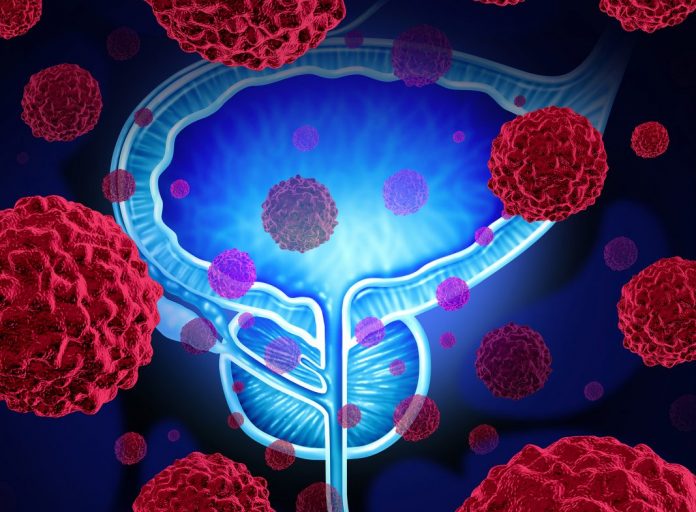
Black men suffer higher rates of prostate cancer, and now research points to genetic variants that may be responsible for early-onset prostate cancer among this population. Researchers at the Wayne State University School of Medicine and the Barbara Ann Karmanos Cancer Institute have found putative markers of the disease in this group. These markers are mostly involved in the body’s response to acquired DNA damage.
The study was recently published in the American Society of Clinical Oncology’s JCO Precision Oncology. The team was led by Jennifer Beebe-Dimmer, PhD, MPH, professor of Oncology at WSU, leader of the Population Studies and Disparities Research Program and scientific director of the Epidemiology Research Core at Karmanos.
“The objective of this study was to examine the prevalence and spectrum of known mutations in cancer susceptibility genes in primarily DNA damage response pathways in African American men diagnosed with early onset prostate cancer,” Beebe-Dimmer explained. “Our knowledge about the importance of these genes in Black men with prostate cancer lags far behind our knowledge in men of European descent.”
Prostate cancer is the leading type of malignancy in men, which causes over 30,000 deaths per year in the US alone. Black men have a much higher rate of prostate cancer than other groups. Understanding that disparity is a priority. However, non-Hispanic white males make up the bulk of subjects in most prostate cancer research.
Genetics are a key issue. One of the risk factors for prostate cancer is a family history of the disease, particularly when there is a father, brother, or son who is diagnosed before age 65. Men in this category are usually encouraged to speak with their doctor before the age of 50 to discuss their risk. However, Black men are encouraged to speak with their doctor at age 45.
“In the absence of genetic information, a family history of prostate cancer, particularly among close relatives—fathers, brothers and sons—is often used as a proxy measure of inherited genetic predisposition. There is a similar logic in looking at men with earlier onset disease. The thought is that these men have an inherited predisposition to disease, which is why it manifests at an earlier age,” Beebe-Dimmer said.
The team conducted whole-exome sequencing of more than 700 Black men 62 and younger who had been diagnosed with early-onset prostate cancer. From the genetic data, they found about 4 percent of the men had HOXB13 (a gene first discovered in White men with hereditary prostate cancer) and decided to take a closer look.
They found 26 unique pathogenic (P) or likely pathogenic (LP) variants in 14 genes (including HOXB13, BRCA1/2, BRIP1, ATM, CHEK2, and PALB2) among 30 men, or approximately 4.0% of the subjects. They also identified 33 unique variants of unknown significance in 16 genes among 39 men.
They write that, “Because of the rarity of these variants in the population, most associations between clinical characteristics did not achieve statistical significance. However, our results suggest that carriers for P or LP (P/LP) variants were more likely to have a first-degree relative diagnosed with DDR [DNA damage repair] gene-associated cancer, have a higher prostate-specific antigen at time of diagnosis, and be diagnosed with metastatic disease.”











